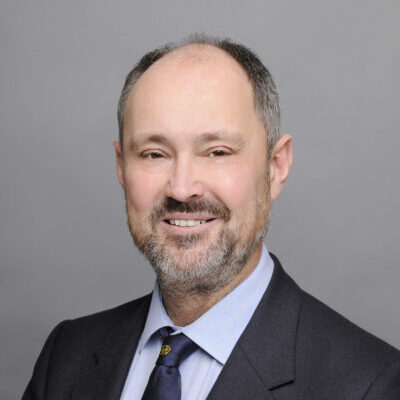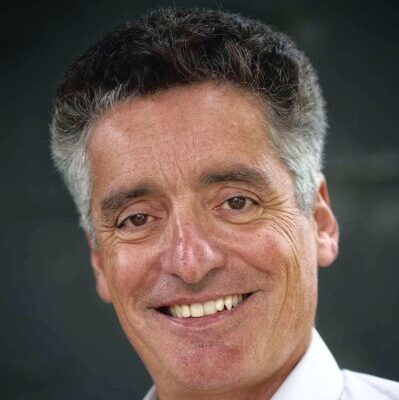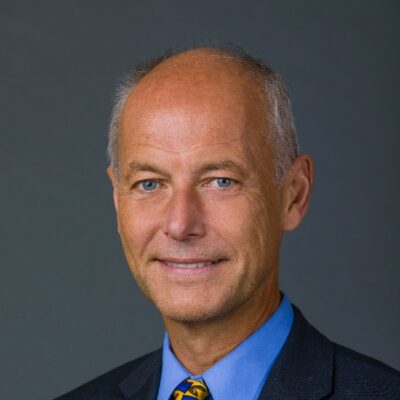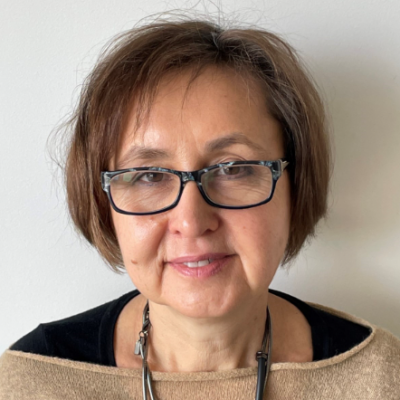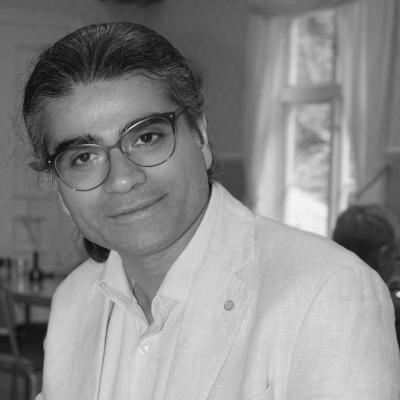
#EFIC2023 Plenary Sessions
Find below a preliminary list of #EFIC2023 Plenary Speakers and their topics.

Alex Clark
Dr. Alex Clark is a Lecturer in Neuroscience at Queen Mary University London. He earned an MSc degree in Neuroscience from University of Nottingham, and a PhD from University College London, supervised by Prof. Martin Koltzenburg. He undertook a post-doctoral position at University of Oxford in Prof. David Bennett’s lab, and subsequently earned a Research Fellowship as well as several other independent grants including the EFIC-GRUNENTHAL grant. His academic research interests are focussed on inherited painful channelopathies and demyelinating neuropathies. He has extensive experience at using iPSCs to model these neurological conditions and was the first to develop myelinating cocultures in human iPSC-derived neurons.

Andrew Rice
Andrew S.C. Rice MB BS, MD, FRCP, FRCA, FFPMRCA, FFPMCAI is Professor of Pain Research at Imperial College London and Honorary Consultant in Pain Medicine at Chelsea and Westminster Hospital, London. He is active in both clinical practice and translational research elucidating neuropathic pain. Andrew’s research covers both laboratory and clinical research spanning animal models, through deep profiling of patients with a view to personalized medicine, to clinical trials and evidence synthesis by meta-analysis. His focus is on neuropathic pain in the context of infectious diseases (HIV, Herpes Zoster, HTLV-1 and leprosy), diabetic neuropathy and peripheral nerve trauma, especially in a military context. He is a vocal advocate for tackling the record of translation failure in his field by improving the internal and external validity of pre-clinical research and for innovating evidence synthesis methods in pre-clinical research. He collaborates with historians to “learn the lessons of history” particularly with regards to post amputation pain in First World War veterans and nutritional neuropathies in survivors of captivity in the Far East 1942-45. He has published well over 230 peer reviewed papers and has a citation (H) index of 61.
Andrew is President-Elect of the International Association for the Study of Pain and has the privileges of serving as liaison to both South Asians (SARPS federation) and Southeast Asian (ASEAPS) chapters of IASP.

Claudia Sommer
Claudia Sommer is a Professor of Neurology at the University of Würzburg, Germany. She received training in neurology, psychiatry, neuropathology, and experimental pain research. At the University Hospital of Würzburg, she serves as a consultant in neurology, organizes outpatient clinics for patients with neuromuscular disorders, pain and headache, and she leads the Peripheral Nerve Laboratory. Research interests are the pathophysiology of inflammatory neuropathies, of pain, and of antibody-mediated diseases. She has written more than 250 original research papers and more than 100 reviews and book-chapters and edited several books. She has served as President of the German Pain Society in 2019-2020 and as President of the International Society for the Study of Pain (IASP, 2020-2022). She is a Fellow of the European Academy of Neurology, a Board member of the Peripheral Nerve Society (PNS) and the International Research Consortium for CRPS.

Didier Bouhassira
Dr Didier Bouhassira (MD, PhD) has been trained in neurology and neurophysiology in Paris. He has been involved in both basic and clinical research on pain and is currently Director of Research at the National Institut for Health and Medical Research (Inserm). He is associate attending neurologist in the Pain Clinic at Ambroise Paré hospital in Boulogne-Billancourt and director of the laboratory of "Pathophysiology and Clinical Pharmacology of Pain" (Inserm U-987).
Didier Bouhassira was president of the French Pain Society (2013-2016) and is an active member of several international associations or societies. He has been field editor for the European Journal of Pain (2008-2021) and associate editor for several scientific journals including Pain. He has co-authored over 220 articles in peer reviewed journals and has written a number of book chapters devoted to the pharmacology and pathophysiology of pain.

Eleonora Galosi
Eleonora Galosi is an MD Neurologist, currently working at the Clinical Neurophysiology and Neuromuscular Disease Unit at the Sapienza University of Rome, Italy.
During her research career she has developed robust skills in clinical and neurophysiological assessment of patients with peripheral nervous system diseases and neuropathic pain conditions, by evaluating patients with painful polyneuropathies of distinct etiologies, including diabetic, auto-immune, and hereditary neuropathies. She has acquired a deep knowledge of small-fibre functional assessment through diverse neurophysiological tests (e.g., pain related potentials, nerve conduction studies) and quantitative sensory testing. She has a long-standing 10 years expertise in the immunohistochemical processing of human skin samples and morphometric analysis of intraepidermal and dermal innervation. She currently manages the Skin Biopsy Lab of the Department of Human Neuroscience of Sapienza University (Rome), under the leadership of Prof. Andrea Truini.
During the last few years, she has specifically focused her research activity on diabetic neuropathy, by investigating the relation between neuropathic pain and intrepidermal innervation in patients with diabetes, as assessed by traditional and new emerging sensory markers, with the ultimate goal to find an association between neuropathic pain and psychometric, neurophysiological, and morphometric variables, which could be potentially used as biomarkers and help to clarify pain mechanisms.

Isabel Ellerbrock
Isabel Ellerbrock obtained her PhD at University Hospital Hamburg-Eppendorf, Germany, studying underlying processes of habituation/sensitization and cognitive modulation of pain using brain imaging. Interested in the potential that different magnet resonance imaging techniques hold, she collaborated on a project comparing markers for g‐ratio‐weighted imaging, signifying a method of in vivo histology in the brain. Finally, she completed post-doctoral studies on mechanisms underlying chronic pain disorders, particularly fibromyalgia, and the influence of genetic markers at the Department of Clinical Neuroscience, Karolinska Institutet, Sweden. Currently, she is employed to implement scientific working methods and support the development of tools for experimentation in the industry.
Find out more about Isabel and her session in this interview:

Jan Van Zundert
Prof. Dr. Jan Van Zundert is anesthesiologist and chair of the Multidisciplinary Pain Centre, Ziekenhuis Oost-Limburg (ZOL), Genk/Lanaken, Belgium. He is also Professor Pain Medicine at the Maastricht University Medical Center, Maastricht, The Netherlands.
He obtained the doctoral degree in Medicine (MD) in 1990 at the KU Leuven, Belgium and completed a 5 years’ residency in anesthesiology and reanimation at the University hospital Antwerp (UZA). Additional specialization in pain medicine at the Radboud University Nijmegen in 1995.
He obtained in 2015 his PhD at the Maastricht University with the thesis: “The use of pulsed radiofrequency in the treatment of chronic pain”. He also followed a postgraduate training in Health Policy and Management at the Catholic University of Leuven and wrote a thesis on “The treatment of (chronic) low back pain in a multidisciplinary pain center: effects and costs”. He also completed a postgraduate training in Health Law and Health Ethics at the University of Antwerp and wrote a thesis on “The scope and enforceability of practice guidelines”
He authored more than 150 publications in PubMed indexed journals. He was (co)author of 42 book chapters. His Hirsh factor is 31. He holds functions in the editorial board of several journals and is the past editor of the Dutch and English version of the guidelines “Evidence based interventional pain medicine according to clinical diagnoses”.
His research interests focus on clinical and translational research in interventional pain medicine. He is member of several national and international associations for anesthesiology and pain medicine.

Jörg Menche
Jörg Menche studied physics in Germany and Brazil. During his PhD at the Max Planck Institute of Colloids and Interfaces he specialized in network theory. He did a postdoc in Boston at Northeastern University and Dana Farber Cancer Institute. He moved to Vienna in 2015 to start his own group at the CeMM Research Center for Molecular Medicine. Since 2020, he holds a joint professorship at the Max Perutz Labs and the Faculty of Mathematics of the University of Vienna.

Lance McCracken
Lance M McCracken is Professor and Head of Division in Clinical Psychology, Psychology Department, Uppsala University, Sweden, since 2018. He completed a post doctoral fellowship at Johns Hopkins in 1994, and was next employed at The University of Chicago, in Psychiatry and in Anesthesia and Critical Care. He was Clinical Lead at the Bath Center for Pain Services in the UK, beginning in 2000, and left that post to take up a post as Professor of Behavioral Medicine at King’s College London in 2011 until 2018. He now has more than 30 years of clinical and research experience mainly in psychological approaches to chronic pain. He conducts clinical research and his interests include contextual behavioral science, psychological treatment development for chronic pain, digital interventions, and single case experimental methods.
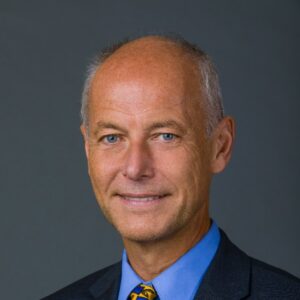
Lars Arendt-Nielsen
Lars Arendt-Nielsen is head of research, professor, dr med, ph d is employed at Aalborg University and Aalborg University Hospital, Denmark. He founded the experimental and clinical pain research group at Aalborg University in 1984 after returning from London where he worked at the National Hospital for Nervous Diseases and studied at The University College London. Following the lectures by the fonder of modern pain research Pat Wall he decided to dedicate his carrier to pain. His group developed and grew over the years and several new pain groups were spun out. He earned his advanced degrees in 1) the area of pain neurophysiology and 2) on phenotyping pain patients and profiling pharmacological pain interventions.
Over the years his activities developed to include many pain areas such as advanced QST methodologies applied to healthy volunteers, neuropathic pain, musculoskeletal pain, and visceral pain. The focus has been on profiling and predicting outcome to pharmacological and surgical procedures. Recently he started focus on itch research and pain profiling including epigenetic markers.
He has published 1,189 peer reviewed journal papers (sum of times cited 42,692, average citations per item 35.9, H-index 98, Web of Science) in the area of pain neurobiology, pain assessment, pain management, musculoskeletal and visceral pain, bio-markers, itch, profiling of analgesic, and anti-inflammatory compounds. Full CV can be downloaded from: https://vbn.aau.dk/en/persons/110350.
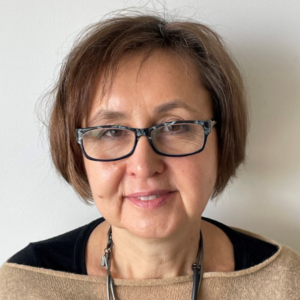
Luda Diatchenko
Luda Diatchenko, MD, PhD is a Canada Research Chair in Human Pain Genetics and a Professor at the Faculty of Dentistry and Medicine, at McGill University. Dr. Diatchenko earned her MD and PhD in the field of Molecular Biology from the Russian State Medical University. Dr. Diatchenko started her career in industry, she was a Leader of the RNA Expression Group at Clontech, Inc., and subsequently, Director of Gene Discovery at Attagene, Inc. During this time, Dr. Diatchenko was actively involved in the development of several widely-used and widely-cited molecular tools for the analysis of gene expression and regulation. Dr. Diatchenko’s academic career started in 2000 in the Center for Neurosensory Disorders at the University of North Carolina. Her research since then is focused on determining the genetic mechanisms that impact and shape human pain perception and risk of development of chronic pain conditions, enabling new approaches to identify drug targets, treatment responses to analgesics, and diagnostics. In total, Dr. Diatchenko has authored or co-authored over 150 peer-reviewed research papers in journals, 10 book chapters, and edited a book in human pain genetics. She is a past and current member and an active officer of several national and international scientific societies, including the International Association for the Study of Pain, the American Pain Society, and Canadian Pain Society.

Michele Sterling
Michele Sterling is Professor in the Recover Injury Research Centre and Director of the NHMRC Centre of Research Excellence: Better Health Outcomes for Compensable Injury, at The University of Queensland, Australia. She is a titled Musculoskeletal Physiotherapist and a Fellow of the Australian College of Physiotherapists. Michele’s research focusses on the mechanisms underlying the development of chronic pain after injury, predictive algorithms for outcomes and developing effective interventions for musculoskeletal injury and pain. She has conducted numerous cohort studies and clinical trials investigating the effectiveness of various treatments and their combinations including exercise, psychological treatments, manual therapies and multidisciplinary care. She has over 200 peer-reviewed publications in this area. Michele is an elected member of the Council of the International Association for the Study of Pain (2016-2022), a Section Editor of Pain and is chair of the Scientific program Committee for the World Congress on Pain in Amsterdam, 2024.

Nadine Attal
Nadine ATTAL, MD, PhD, is Professor of therapeutics and Pain medicine in Paris Saclay University (Versailles) and responsible for the Center of Evaluation and Treatment of Pain in Ambroise Paré Hospital, Boulogne-Billancourt, France. She is associate director of the INSERM U987 Research Unit on Pain (directed by Didier Bouhassira), member of the Council of the International Association for the Study of Pain, of the scientific committee of the European Academy of Neurology and section editor of the journals British Journal of Anesthesia andPain Reports. Her research activity mainly focuses on neuropathic pain and chronic pain management. She has coordinated several international guidelines on neuropathic pain assessment or treatment and has authored 165 peer review papers in high impact factor journals such as Brain, Neurology, Lancet Neurology, Pain (H index > 50). She has been giving several plenary lectures at international Pain congresses including the World congress on Pain, the Edmond Charlton hononary lecture at the last International Congress on neuropathic pain (NeuPSIG) and the Rynd honorary Plenary Lecture at the Irish Society of Anesthesiologists (May 2022). She received several prizes and awards including a biology price from the « Académie des Sciences » and was promoted « Chevalier de la légion d’honneur » in 2016.

Philip Larkin
Chair of Palliative Care Nursing
Lausanne University Hospital and University of Lausanne
Switzerland
Philip Larkin, Full Professor
Since August 2018, Philip Larkin has held the Kristian Gerhard Jebsen Chair of Palliative Care Nursing within the Palliative and Supportive Care Service of the University Hospital Centre (CHUV). He also directs the Master of Science in Advanced Nursing Practice at the Institute for Higher Education and Research in healthcare (IUFRS), University of Lausanne.
An Irish national, Philip Larkin has over 30 years of experience in the palliative care sector, both clinically and academically. He has become an important figure in the field in Ireland and elsewhere: As Professor of Palliative Care at University College Dublin, he has led the development of the All Ireland Institute for Hospice and Palliative Care, a public health project bringing together The Republic of Ireland and Northern Ireland to improves palliative care outcomes for all citizens. He was President of the European Palliative Care Association (EAPC) from 2015 to 2019.
His research has focused on access to palliative care for vulnerable populations, with a particular focus on patients with mental health issues, disability, children and palliative care needs in rural isolation, groups often marginalized in accessing palliative care. The place of compassion in palliative care is also part of his academic scholarship.
He currently leads a palliative care nursing research team at the CHUV and continues to lecture nationally and internationally on nursing care, palliative care and compassion in care.

Ralf Baron
Ralf Baron Professor Dr med FFPMCAI is Head of the Division of Neurological Pain Research and Therapy at the Department of Neurology, Christian-Albrechts-Universitaet Kiel, in Germany. From 1999-2004, he served as General Secretary of the German Interdisciplinary Pain Society (DIVS), from 2005-2016 he served as a Management Committee Member of the Neuropathic Pain Special Interest Group (NeuPSIG) of the International Association for the Study of Pain (IASP) and from 2008-2010 as a board member of the Deutsche Schmerzgesellschaft. He has been a Councilor of the International Association for the Study of Pain (IASP) from 2010-2016. His main research interest is the pathophysiology and therapy of neuropathic pain states. He has intensive scientific collaborations with several researchers worldwide, e.g., Professor HL Fields, San Francisco, USA, and Professor TS Jensen, Aarhus, Denmark. Professor Baron is associate editor and reviewer for many scientific journals (Advisory Board Member for Nature Reviews Neurology, Associate Editor for the European Journal of Pain). He has been the recipient of the German Pain Award, the Heinrich-Pette-Award of the German Neurological Society and the Sertürner-Award. In 1998 he was awarded a Feodor Lynen fellowship by the German Humboldt Foundation and was visiting professor at the Department of Neurology, University of California, San Francisco. Professor Baron has authored more than 370 publications with his outstanding and motivated research team, and has lectured at numerous conferences and symposia worldwide.

Rianne van Boekel
Regina (Rianne) L.M. van Boekel RN, PhD is a trained nurse, teacher, epidemiologist and researcher who acquired her PhD in the year 2017 at the Radboud University, the Netherlands.
She is currently assistant professor at the Department of Anesthesiology, Pain and Palliative Medicine of the Radboud university medical center in the Netherlands. Her research focuses on acute postoperative pain management, prediction and assessment of pain. She is an active member of the research department and participated in various research projects, aiming to bring research closer to the public society, such as the Radboud research team at Lowlands 2016 and the Great National Research on the Sensitivity of Pain in The Netherlands (2017).
She won several personal scholarships and awards and is member of several (inter)national scientific (advisory) committees. Rianne also works as senior researcher in the Lectorate Emergency and Critical Health Care of the Knowledge Centre of Sustainable Healthcare, School of Health Studies at HAN University of Applied Sciences. She initiated the two-year post-graduate program for pain nurse consultant at the HAN in the year 2011 and is still actively involved in this training.
Supporting the development of pain nurse consultants, Rianne was the president of the Dutch Association of Pain nurses from 2015-2021, an association that she founded in 2006. In this association, she supervised the establishment of the area of expertise of Pain Nursing, as well as the Pain Nursing domain in the Nurses’ Quality Register. She also actively collaborated with European colleagues to develop the Core curriculum for the European diploma in Pain Nursing, published in 2019. She is also the president of the multidisciplinary Working Group that prepares the quality indicator Hospital-wide Pain Management commissioned by the Healthcare Inspectorate. She also served as a board member of the Dutch Pain Society and Pain Alliance in the Netherlands (P.A.I.N.).
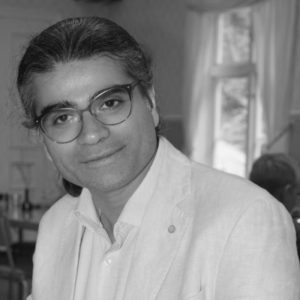
Saad Nagi
Saad Nagi is an associate professor in neurophysiology at Linköping University, Sweden. His laboratory’s interests revolve around understanding the peripheral nervous system’s role in acute and persistent pain using microneurography (single-unit afferent recordings in awake humans) combined with targeted pharmacological and psychophysical approaches. A recent focus area is understanding how the nervous system creates and modulates perceptions linked to the activation of very fast-conducting myelinated nociceptors in health and disease.

Suellen Walker
Suellen Walker MBBS MMed MSc PhD FANZCA FFPMANZCA FFPMRCA is Professor of Paediatric Anaesthesia and Pain Medicine, UCL GOS Institute of Child Health and Great Ormond Street Hospital, London, UK. Following her medical degree, she has completed a Masters in Medicine in Pain Management, MSc in Neuroscience, and PhD in developmental neurobiology of pain. She was a Foundation Diplomate of the Faculty of Pain Medicine, Australian and New Zealand College of Anaesthetists when it was established in 1999 and was Elected to Fellowship of the Faculty of Pain Medicine, Royal College of Anaesthetists, UK in 2016.
Professor Walker is Principal investigator, Paediatric Pain Research Group, Developmental Neurosciences Programme. Her clinical activities include acute and chronic paediatric pain management, and she has been a contributor and editor of pain management evidence-based guidelines and textbooks. Her research interests include translational laboratory and clinical research evaluating the developmental neurobiology of pain, potential long-term effects of early life pain and injury, and neuropathic pain in children.

Winfried Meissner
Job title and affiliation:
Prof. Dr. Winfried Meissner
Head of Pain Unit and Palliative Care Department
Dept. of Anesthesiology and Intensive Care Medicine
Jena University Hospital
Winfried Meissner was appointed Head of Jena University Hospital’s Pain Unit in 1994, and Head of the Palliative Care Department in 2009. The Pain Unit covers all areas of pain management (acute pain service, outpatient service unit, inpatient consultation service, multimodal pain management program, interdisciplinary pain conference). Meissner and his group have initiated QUIPS in Germany and PAIN OUT (int.), two large pain registries to improve postoperative pain management and to facilitate health service research which resulted in a couple of landmark publications. In addition, he was coordinator of the NeuroPAIN project which has studied pain and neurologic consequences in sepsis survivors. He has broad teaching experience. He is coordinator of IMIPainCare's subproject PROMPT (setting up a registry to follow-up postsurgical pain). In 2020, he received the Robert G. Addison Award by the American Academy of Pain Medicine.
Meissner is president of the German Pain Society and member of several national and international societies including ESA and IASP. He is married and has five children.
Musculoskeletal
Pain
What predicts Musculoskeletal Pain
- Lars Arendt-Nielsen (Denmark)
Rehabilitation Interventions for Pain Conditions
Targeted rehabilitation interventions for pain conditions: An evidence update
- Michele Sterling (Australia)
NEUROPATHIC PAIN DEBATE
Chair: Nadine Attal (France) and Andrew Rice (United Kingdom)
Personalized treatment in neuropathic pain: What pinpoints responder?
- Ralf Baron (Germany)
- Didier Bouhassira (France)
- Claudia Sommer (Germany)
POSTOPERATIVE PAIN
Postoperative Pain – (Personalized) pain management after surgery can we learn something from large pain registries?
- Winfried Meissner (Germany)
NURSE – LED PAIN MANAGEMENT
Options for nurse-led interventions for personalized post-surgical pain management
- Rianne Van Boekel (Netherland)
SPECIAL PATIENT GROUPS
Pain mechanisms in neonates and pediatrics – do we know enough to personalize treatment?
- Suellen Walker (United Kingdom)
BASIC SCIENCE
Network medicine – novel opportunities for individualised disease management? Lessons from other biomedical fields
- Jörg Menche (Austria)
CANCER PAIN
Whole-person care approach: compassion in cancer pain management
- Philip Larkin (Switzerland)
PSYCHOLOGICAL ASPECTS
Cognitive behavioural approaches for chronic pain – who benefits and how to do better?
- Lance McCracken (Sweden)
INTERVENTIONAL PAIN MEDICINE
What are the challenges and limitations in progressing towards a more personalized treatment
- Jan Van Zundert (Netherland)
TRANSLATIONAL SCIENCE
Translational pain research – from patients to rodents and back to patients: impact, limitations, and progress
- Luda Diatchenko (Canada)
EARLY CAREER PLENARY PRESENTATIONS ON CLINICAL RESEARCH
Serotonergic gene-to-gene interaction is associated with mood and GABA concentrations but not with pain-related cerebral processing in fibromyalgia subjects and healthy controls
- Isabel Ellerbrock (Sweden)
Disclosing mechanisms underlying painful diabetic neuropathy. A clinical and skin biopsy study with new emerging sensory biomarkers
- Eleonora Galosi (Italy)
EARLY CAREER PLENARY PRESENTATIONS ON BASIC SCIENCE
Investigating the pathophysiology of SPTLC1 mutations that cause painful hereditary sensory neuropathy type 1 using human iPSC-derived sensory neurons
- Alex Clark (United Kingdom)
An ultra-fast system for signalling mechanical pain in human skin
- Saad Nagi (Sweden)

